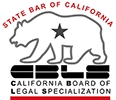After a Workers’ Compensation denial, here are the steps you should take.
Determine the Reason for the Denial
You should find out from the employer or insurer why your claim was denied. Your denial letter should detail the reasons. If it were something simple, such as a missing form, you may be able to correct the problem quickly by reaching out to the claims adjuster.
If there is a more serious issue, such as questions about whether your injury was work-related, then you’ll likely need to go through a mediation or appeals process. You will need to be evaluated by a doctor to establish that the condition is related to your work. Usually, this means going to a Qualified Medical Evaluator (QME). How the QME is selected depends on whether you are represented by an attorney. Consult an attorney to determine the best course for you.
Appeal the Denial
This involves submitting an appeal to the Division of Workers’ Compensation or the Workers’ Compensation Appeals Board (WCAB). You should file your claim with the WCAB District Office closest to or in the county where you live. For example, in the Greater Inland Empire, there are District offices in San Bernardino, Riverside, and Pomona. An attorney can help you decide where to file the claim, or you may contact the Information and Assistance Unit (I&A) at any District Office. You can reach the I&A at 1-800-736-7401. I&A officers are not attorneys, but they can help you with basic information at no charge on how to file and pursue your claim. If your claim is denied, however, the experience of an attorney may be essential to successfully reversing that denial.
Request a Hearing
When you submit your appeal, you can request a hearing. This will usually take place before a Workers’ Compensation Administrative Law Judge (WCALJ) who works for the WCAB.
You’ll be notified of the date and place of your hearing and should prepare for it by gathering evidence and preparing to explain why you deserve benefits.
Attend Your Hearing and Argue Your Case
You will need to attend your hearing before the WCALJ. Usually, the first hearing is a Status Conference or Mandatory Settlement Conference. These hearings are usually done virtually. If the matter is set for trial, that hearing will usually be heard in person at the District Office where your claim has been filed. You’ll have the chance to present your arguments and evidence, and the insurer can do the same. Your employer or their insurance company will almost always have an attorney representing them at these hearings. You should do the same.
The WCALJ will usually issue its decision in writing within 90 days after the hearing. If the WCALJ finds in your favor, then the appeals process is over, and you’ll be able to access benefits. If that’s not the case, you can continue to move forward with additional steps in the appeals process. The losing party does have the right to appeal the decision to the next court up, which is the Workers’ Compensation Appeals Board in San Francisco, CA. These appeals are usually done only in writing, so an appearance in San Francisco will not be necessary. This appeal process (usually known as Reconsideration) is rather complicated and technical. An experienced attorney will know how to prepare a successful Petition for Reconsideration. You have a limited time to pursue this appeal and will need to submit evidence explaining why the administrative judge was wrong in denying your claim.
Speak With an Ontario Workers’ Compensation Lawyer at Lerner, Moore, Silva, Cunningham & Rubel
Our Ontario Workers’ Compensation lawyers at Lerner, Moore, Silva, Cunningham & Rubel understand your rights and protect your benefits. Call 909-889-1131 or contact us online for a free consultation. Located in Ontario and Victorville, California, we serve clients in San Bernardino County, Ontario, Victorville, Hesperia, Apple Valley, Fontana, Rancho Cucamonga, Colton, and Riverside County.


Disclaimer | Privacy Policy | SMS Terms & Conditions
Making a false or fraudulent workers’ compensation claim is a felony subject to up to five years in prison or a fine of up to $50,000 or double the value of the fraud, whichever is greater, or by both imprisonment and fine. The information contained on this website does not guarantee, warranty, or predict the outcome of your case.








